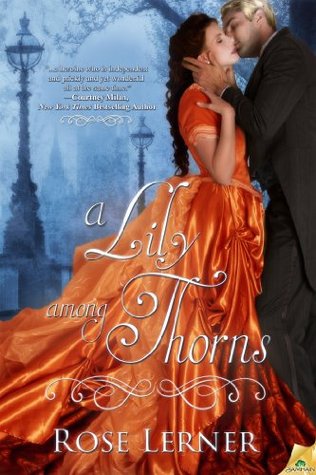Hi friends! I don’t want to say much because I want this to be Rose’s space to talk but brief background. A while ago, after reading Lerner’s short in Gambled Away, I invited her to do a guest post about why representation in literature is important to her and being the kind, wonderful soul she was, she agreed to do it. SO WITHOUT FURTHER ADO, PLEASE PROCEED TO READ HER INCREDIBLY WELL WRITTEN and THOUGHT OUT POST.
When Rashika asked me to write a blog post about Jewish representation, I really struggled with where to start. How to focus. I had so much to say. I wrote thousands of rambling words, and felt dissatisfied with them.
Then I read this, from Aaron Lansky’s memoir Outwitting History.
It’s funny. In America people sometimes think I’m Irish; in Eastern Europe they could tell from a hundred yards away that [we] were Jews, and as a result no one in Ukmerge wanted to talk to us. They were afraid, Sasha explained, that we were descendants of the town’s earlier inhabitants, come to reclaim the empty homes their neighbors had expropriated after the war.
And where were the Jews of Vilkomir [Ukmerge’s old name]? Dead, dead, every man, woman, and child, rounded up and shot by German soldiers on a single summer day in 1941. The only remnant of Jewish life we could find was the old cemetery, an empty field on the outskirts of town, overgrown with weeds, with a children’s playground at the far end. Strange, but there was only one metseyve, one tombstone, marking the graves of the tens of thousands of Jews who must have laid buried there. It bothered us, and we asked about the missing grave markers later that afternoon, when we arrived in Vilna.
“Until last month there were no metseyves at all in Vilkomir,” our host told us. “The one you saw, we put it there as a memorial.”
“And what happened to the rest?”
“Kumt mit mir [come with me],” said our host, and he drove us to the base of a monumental stone staircase leading to an imposing Soviet building called the Palace of Trade Unions. Looking closely at the stairs, we could just discern carved Hebrew letters. The entire staircase—like retaining walls, streets, and other staircases throughout the Soviet Union—had been made of Jewish metseyves. Not enough that the Nazis murdered the Jews of Europe; after the war, the Soviets were determined to eradicate the memory that they had ever lived.
I couldn’t stop thinking about this story.
While I was researching this post, I ended up on a TV Tropes page titled “You Have to Have Jews.” It begins, “For a minority forming less than one quarter of one percent of the world’s population, Jews are massively disproportionately represented in the media…” and, in the section at the bottom for examples of the trope in such genres as “Comics” and “Literature,” there is a category titled “Real Life.”
People think we are overrepresented in real life. Think about what that means. Think about possible solutions to this “problem.”
A few weeks ago on Twitter, because I was talking about neo-Nazi Trump supporters, two antisemites contacted me on the same day. One told me the Holocaust never happened; the other promised me that one day, they would achieve a Jew-free world.
They don’t just want to kill us; they want to eradicate the memory that they did it. That we ever lived in the first place.
If there’s really this huge wealth of Jewish representation in movies and TV…I guess I’m watching the wrong movies and TV? Yeah, okay, I guess there was an embezzling Hollywood business manager on Lucifer last week named Goldburg. Not really what I had in mind.
Here’s the thing: I don’t just want representation. I want good representation. Representative representation, even.
The truth is that Jewish actors who could pass as non-Jews are most likely to be successful. Even worse, Jewish roles are likely to go to non-Jews who happen to have dark hair or large noses. Especially if the roles are central or sexy or heroic. Jews are character actors and comic relief.
It’s worst in Holocaust stories. When I see Tom Hiddleston cast to play a dashing Jewish World War II war photographer who looked like this [link: http://leicaphilia.com/wp-content/uploads/2014/08/Robert-Capa_Paris-autumn-1935.jpg], or Helen Mirren cast to play a Holocaust survivor not once but TWICE (wearing unnerving dark contacts in one film to “look more like” the real-life Jewish woman she’s portraying, whom she looks nothing like [link: http://roselerner.tumblr.com/post/106743612073/dame-helen-mirren-is-to-star-in-the-true-story-of]), it hurts. It makes me furious.
It says, “We want your stories, but we don’t want the reality of you. We want to bathe in your suffering, but we don’t want to look at your ugly faces while we do it. We want to erase Jews from the screen even in movies about the attempt to erase Jews from the earth.”
Many Gentiles, I’ve learned, rarely think about Jews. (Obviously, there’s an element of privilege here for Ashkenazi Jews, who are seen by many Americans as white. Passing privilege is real privilege and nothing I say here is meant to counter or deny that.) Gentiles don’t think about me being Jewish, and they often seem a little surprised to discover I’m thinking about it. That actually I think about it all the time, because it’s who I am. When I remind Gentiles that we exist, that I exist, I’m met with surprise and resistance. “Cher and her family in Clueless are Jewish? Are you sure? How do you know?”
I know because I was looking.
I am always on the lookout for other Jews. The only way to know for sure if someone is Jewish is to ask them, but there are plenty of clues. I’ve learned to be aware of them. Being the only Jew in a room, workplace, or town can be boring, lonely, and sometimes unsafe; knowing where other Jews are is an important life skill.
I do the same thing in media. Most Jews I know do. My mom always told me who was Jewish when we watched movies, and sometimes what their real names were before they changed it to sound less Jewish. One of my BFF’s earliest memories is listening to discussions of who was Jewish at her dad’s Oscar party. (And keep in mind that before the internet, this information had to be shared and collated by word of mouth!)
It’s a pretty frustrating exercise, most of the time.
There are several primary categories of…let’s not say ‘unsatisfying.’ Characters in all of these categories have meant the world to me. Let’s say: there are several primary categories of problematic Jewish representation in film and TV. Together these make up a vast majority of Jewish characters, especially in genre TV which is what I primarily watch.
1. Characters who are Jewish, but it informs nothing about their character and is only brought up: to add diversity to a Christmas episode; as a punchline (Willow Rosenberg has to nail a cross on her wall to keep out vampires! Let’s not even try to unpack that or we’ll be here all day); or to add cheap “edginess” (like when a supervillain put Felicity Smoak in a gas chamber. Stay classy, Arrow).
2. Characters who feel Jewish but it’s never stated. Oh, the agony of hope!
Very little Jewish representation in film and TV is explicit. So I’m always trying to read the clues. What is the character’s name? Do they ever mention Christian holidays or going to church? Is the actor Jewish? (Sometimes looking for the answer to that one can break your heart too, like when I googled a favorite actress and found her listed as a “suspected Jewess” on a hate site.) Did they use a common Yiddish word in episode 4? Do they eat bagels?
Obviously none of this is remotely conclusive. Which can lead to heartache when, for example, you assume that the main character of Chuck and his sister are Jewish because:
– Chuck’s last name is Bartowski
– His sister’s name is Ellie and she’s a doctor
– He works in IT
– Josh Schwartz is a producer on the show
– The actor is named Zachary Levi and he looks Jewish to me
I really thought I was safe…until halfway through the first season I found myself in the middle of a Christmas episode. I’m still bitter nearly ten years later.
In these situations, I end up both hoping with all my heart that the character’s Jewishness will be officially confirmed, and hoping with all my heart it’s never discussed one way or the other so I can keep believing.
I actually have a side tumblr [link: http://headcanonjewishcharacters.tumblr.com/] dedicated solely to characters like this. (It’s a sister blog to canonjewishcharacters.tumblr.com, devoted to characters are actually stated to be Jewish in canon. Scroll through and see people gleefully, compulsively compiling proof. Because you know that if you don’t have the proof, no one will believe you.)
3. Characters who are coded as Jewish but are actually not Jewish at all. Spock, for example, or Captain America.
Why does this happen?
We want to tell our stories, but we believe no one wants to see us. Maybe we don’t even realize we believe this.
We’re not wrong.
So we sneak ourselves in. We put in a Jewish character but don’t ever come out and say they’re Jewish. We draw on our own family’s Jewish immigrant experience to write a Regency heiress with working-class roots trying to assimilate into high society and we name her Penelope Brown. We imagine our hero looking like Adam Brody but name him Nathaniel Ambrey, Lord Nevinstoke.
Oh wait, that was me, in my first book In for a Penny.
Why didn’t I write about Jewish characters?
Well, I didn’t want to have to write about Jewish characters just because I was Jewish.
Well, I didn’t want to have to do the extra research on Regency Jews.
Well, I wanted the book to sell.
Those are all true things. But honestly, it mostly never occurred to me. I read Regency romance about Christians, I wrote Regency romance about Christians, and when I had plot ideas, they were all about Christians. My own fantasy life excluded me.
This, even though one of the first Regencies I ever read had a Jewish hero and heroine (Miss Jacobson’s Journey by Carola Dunn) and I think it was part of why I felt at home in the genre. This, even though I looked at every copyright page for the author’s real name and tried to decide if she was Jewish.
I was nervous when I chose my pen name, Rose Lerner. I knew from looking at all those copyright pages that there were probably successful Jewish authors out there, but they almost all went by, like, Joan Ashford on their book covers. I went over and over the email I wrote to my editor about it. Here’s what I said:
“The one I’ve been thinking about is ‘Rose Lerner,’ but if you think that’s a bad idea for whatever reason, or that it would be easier to market something a little more British, let me know.”
I was afraid to even come out and say “Jewish” in the e-mail. As if it would jinx me.
(I’d like to take this moment to thank my editor Leah Hultenschmidt for just saying “Rose Lerner is fine as far as I’m concerned.” I really appreciate it! I’d also like to thank Regency author Barbara Metzger for inspiring me to be brave. I have no idea if she’s Jewish, but either way, she kept her non-English-sounding name and it meant a lot to me.)
It took me until my fourth book, True Pretenses, to say, “You know what, I’m writing a Jew this time.” I didn’t expect to love it as much as I did. But I did! I loved it! When you write a character, you build them out of pieces of yourself. Always. There were so many pieces of myself I wasn’t using. So many pieces I was holding back.
I didn’t expect to write another Jewish character so soon. But I mentally cast Lyndsy Fonseca from Nikita to play my heroine in “All or Nothing”, and when I looked into it I learned that Fonseca is a Portuguese Sephardic Jewish name, often belonging to Anusim (people whose ancestors were forced to convert or hide their Jewishness, usually by the Inquisition). I thought about ignoring it. But I was sick of characters played by Jewish actors always turning out to be Gentiles. So I sat down and did the research. And then I loved writing Maggie.
Now I’m working on another novella, this one where the hero and heroine are both Jewish, and part of me never wants to go back. (Even though part of me is definitely worried about how being pigeonholed as a Jewish author might affect my sales.)
I’m already trying to figure out if there’s a good way to make the political hostess heroine of my next book Jewish. We’ll see, I guess.
I wanted to end with a short list of some of my favorite Jewish characters, so:
1. Anastasia Krupnik. I identified so hard with Anastasia as a kid! (I’m furious about the new covers on last year’s reprints, which erased the adorable Jewish girl I remember and replaced her with a blonde, tiny-nosed, very Gentile cartoon.)
2. Magneto. Yes, I fell in love with him from the movies and both actors fall in the “Gentiles with big noses” category, and it pisses me off that he’s a villain because he’s “too bitter about the Holocaust”, but oh my god I love Magneto. I love everything about him. Smash everything, buddy! SMASH ’EM!
3. Baby, from Dirty Dancing. Enough said. Everyone knows Baby is the best.
4. Detective Jake Peralta from Brooklyn Nine-Nine. What a mensch! Also, when he looks sad, my heart wobbles.
5. I just saw Denial a couple weeks ago, about a college history professor who gets sued for defamation by a Holocaust denier, and I am in love with Rachel Weisz as the main character Deborah Lipstadt. Goofy and cute with a core of steel, heroic but totally, prosaically human. And her hair!!
About the Author
Rose Lerner writes Regency romance with strong heroines and adorable heroes. Her most recent books are Listen to the Moon (book three in her Lively St. Lemeston series, about a very proper valet and a snarky maid-of-all-work who marry to get a plum job) and a novella in Gambled Away, a trope-centric historical romance anthology with Molly O’Keefe, Joanna Bourne, Jeannie Lin, and Isabel Cooper. When not reading, writing, or researching, she enjoys cooking and marathoning TV shows (her current obsession is professional wrestling). She lives in Seattle with her best friend.
BUY HER BOOKS
(seriously, you should buy them because she writes really swoon-y books)




Latest posts by Rashika (see all)
- Not a Good Addition to the Series: Alone in the Wild by Kelley Armstrong - January 29, 2020
- A Mixed Bag: Scavenge the Stars by Tara Sim - January 20, 2020
- Light-Hearted and Thoughtful: The Right Swipe by Alisha Rai - December 18, 2019
- Romance Mini Reviews #5: Trio of Contemporary Goodness - December 10, 2019

























 Blog design by
Blog design by
TAM
Hi Rose, thank you for the post! I love your books, & I respect your worry about being pigeonholed, but I’d keep reading even if you never had another Gentile main character. (I am not Jewish myself.)
Maggie’s Jewishness was beautifully part of her story- setting aside the undeniable virtues of representation, I thought it was great just as craft.
Karin
I LOVED your portrayal of the Jewish characters in “True Pretenses”, and I felt like their whole rootlessness was part of it. Or is that just me projecting?
Speaking of Jewish characters on TV, Rhoda Morgenstern!
Katie
Hate to break it to you, but Lyndsy Fonseca is not of Jewish descent. Fonseca is just a Portuguese and Galician surname. It’s not only for Sephardi Jews, although many do have it.
Here is more on her background:
http://ethnicelebs.com/lyndsy-fonseca
So, unfortunately, your mental cast was also of a Gentile as a Jewish woman.
However, Lyndsy’s mother did convert to Judaism to marry her stepfather, Reid Dworkin. Similar to Ivanka Trump and Evan Rachel Wood’s mother. But that wouldn’t make Lyndsy Jewish unless she converted.
Katie
http://www.ancestry.com/name-origin?surname=fonseca
The surname is Spanish and Portuguese, coming from a spring that dried up during the summer months. Many Sephardi Jews took on Spanish and Portuguese surnames due to the Inquisition. Like Franco (James Franco is Portuguese on his father’s side and Jewish on his mother’s), Perez, etc. But these surnames are common among the non-Jewish Spanish and Portuguese populations.